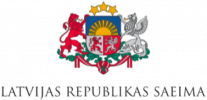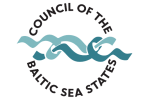The recent conference “Energy future of the Baltic States: addressing regional challenges together”, organized by the Baltic Assembly and the Baltic Council of Ministers, on 16-17 May 2024 in Vilnius, highlighted the pressing need for enhanced cooperation and coordination among the Baltic States to ensure a secure and sustainable energy future for the region.
President of the Baltic Assembly Andrius Kupčinskas highlighted the thematic focus of the conference on the energy future of the Baltic States. He noted the significant strides made since Russia's invasion of Ukraine, with the Baltic States working diligently to become more independent and secure in their energy policies. Andrius Kupčinskas emphasized the need for a Baltic long-term strategy for energy security and independence, promoting renewable and clean energy sources as a key response to the climate crisis and energy transition.
The Baltic Assembly has recommended the creation of a single Baltic hydrogen strategy to leverage hydrogen as a transformative energy carrier. This strategy aims to reduce costs, avoid duplication of efforts, and enhance regional competitiveness. Andrius Kupčinskas also mentioned the formation of a new working group within the Baltic Sea Parliamentary Conference, focusing on energy security and connectivity, highlighting the unity and coordinated efforts in the Baltic Sea region.
Speaker of the Seimas of Lithuania Viktorija Čmilytė-Nielsen opened the conference by emphasizing the importance of strengthening cooperation and echoing the resilience and unity reminiscent of the Baltic Way. She highlighted the critical need for enhanced security and resilience amidst the ongoing conflict on the eastern borders, stressing the importance of energy security and independence.
Viktorija Čmilytė-Nielsen called for the cessation of all energy imports from Russia and the development of energy interconnections between the Baltic States and Poland. She also underscored the necessity of a coordinated approach to renewable energy, the protection of critical infrastructure, and the integration of Ukraine into the EU energy market.
Session I: Increasing cooperation and coordination of the Baltic States to enhance energy security and independence in the region
Opening the first session of the conference, Reinis Āboltiņš, Energy Market Analyst at the Public Utilities Commission of Latvia, outlined the importance of collaboration and coordination among the Baltic States, noting the diversity in their energy portfolios. He emphasized the need to achieve energy security and sustainability, ensuring affordable energy availability.
Thierry Segard, Deputy Director at the NATO Energy Security Centre of Excellence, emphasized that the NATO 2022 Strategic Concept highlights the threat of adversaries using energy as a weapon, necessitating a coordinated and comprehensive approach to protect critical energy infrastructure, ensure reliable energy supplies, and enhance cooperation between the military, private, and public sectors. Segard highlighted NATO's role in supporting nations and partners in meeting energy security challenges, including the conduct of tabletop exercises like CORE-23 Baltic TTX.
Vice-Minister of Energy of Lithuania Inga Žilienė shared insights from participation of Lithuania in security exercises, noting the valuable lessons learned from situation in Ukraine. She detailed the increased security measures for critical infrastructure, including the installation of drones and the development of isolated microgrids. Žilienė stressed the importance of common standards for regional integration and a coordinated response to cross-border threats. She highlighted progress of Lithuania in enhancing electricity grid interconnectivity and the need for local energy generation to reduce reliance on imports.
Kristjan Kaldmaa, Advisor on Security of Supply at the Department of Energy at the Ministry of Climate of Estonia, emphasized the importance of cybersecurity and addressing infrastructure vulnerabilities. He called for a common Baltic approach to managing infrastructure investments and ensuring rapid repair capabilities. Kaldmaa highlighted the need for anti-drone capabilities and solutions to regulatory challenges. He stressed the importance of developing a unified regional energy security strategy to address these issues comprehensively.
Benelux perspective
Vice President of the Benelux Parliament Patricia Creutz addressed the broader European context, noting the significant impact of Russian invasion of Ukraine on the economy and energy security of the region. She emphasized the need for the Baltic States and Benelux countries to collaborate on creating a resilient energy market. Patricia Creutz highlighted the EU sanctions against Russia and the reorientation of European energy supplies, stressing the importance of using frozen Russian assets to rebuild Ukraine. She underscored the necessity of cross-border cooperation for the green transition, reflecting the shared public sentiment in the Benelux countries for accelerated climate action.
Session II: Renewable energy in the Baltic States: harmonizing approaches and encouraging joint projects
The second session focused on harmonizing approaches to renewable energy and encouraging joint projects. Reinis Āboltiņš highlighted the complexity of integrating renewables into the energy system, stressing the importance of avoiding price volatility.
Līga Rozentāle, Deputy State Secretary of the Ministry of Climate and Energy of Latvia, provided an overview of renewable energy efforts of Latvia. She highlighted that while Latvia has less wind energy generation compared to Estonia and Lithuania, it has twice as much electricity production overall. Latvia aims to achieve 100% renewable electricity consumption by 2030, requiring an estimated 1.5-2 GW of wind energy. Rozentāle noted the challenges of public acceptance for wind energy and outlined steps being taken to increase grid capacity and streamline administrative procedures for wind park connections. She also mentioned Latvia's significant solar energy potential, with around 3000 MW of booked capacities.
Advisor on Wind Energy at the Ministry of Climate of Estonia Nikon Vidjajev discussed Estonian clear energy policy principles, including minimizing Russian influence and decarbonizing the electricity balance by 2030. He reported substantial progress in onshore wind energy, with barriers being removed and a compensation mechanism implemented. Nikon Vidjajev highlighted the Elwind project as a prime example of successful cooperation, which includes interconnections and a grid launched to Saaremaa Island. Potential of Estonia for offshore wind energy is significant, with plans for an offshore wind tender and a maritime spatial plan to be completed by 2033.
Lukas Satkauskas, Senior Specialist of the Sustainable Energy Policy Group at the Ministry of Energy of Lithuania, emphasized shift of Lithuania from being a gas transit country to focusing on renewable energy growth. Lithuania plans to install 5 GW of onshore wind and solar energy, and 2 GW of offshore wind by 2030. Lukas Satkauskas highlighted Lithuania's goal of generating almost half of its energy from renewable sources, aiming for significant increases in electricity generation and hydrogen development by 2050. He outlined key priorities for energy transformation, including RES auctions, road transport electrification, regional hydrogen and electricity infrastructure, zero-carbon products industry, and reinforcement of power grids.
Nordic perspective
Annette Holmberg-Jansson, Member of the Nordic Council, shared the Nordic perspective on energy cooperation, emphasizing the interconnected challenges of security, affordability, and sustainability. She discussed the impact of recent geopolitical events on energy prices and the rise of energy poverty. Annette Holmberg-Jansson highlighted the importance of stable pricing systems and public engagement in renewable energy projects.
Strengthening cooperation for a sustainable and secure energy future
The conference underscored the critical need for cooperation and coordination among the Baltic States to ensure energy security and sustainability. Participants agreed on the importance of a unified approach to renewable energy, the protection of critical infrastructure, and the development of comprehensive energy strategies. The Baltic Assembly, together with the Baltic Council of Ministers, will continue to play an important role in fostering dialogue, cooperation, and joint action to achieve a resilient, secure, and sustainable energy future for the Baltic region.
Participants from the Baltic States, as well as Åland, Belgium, Germany, Luxembourg and Poland, took part in the conference.
Photos
© Seimo kanceliarija, Olga Posaškova
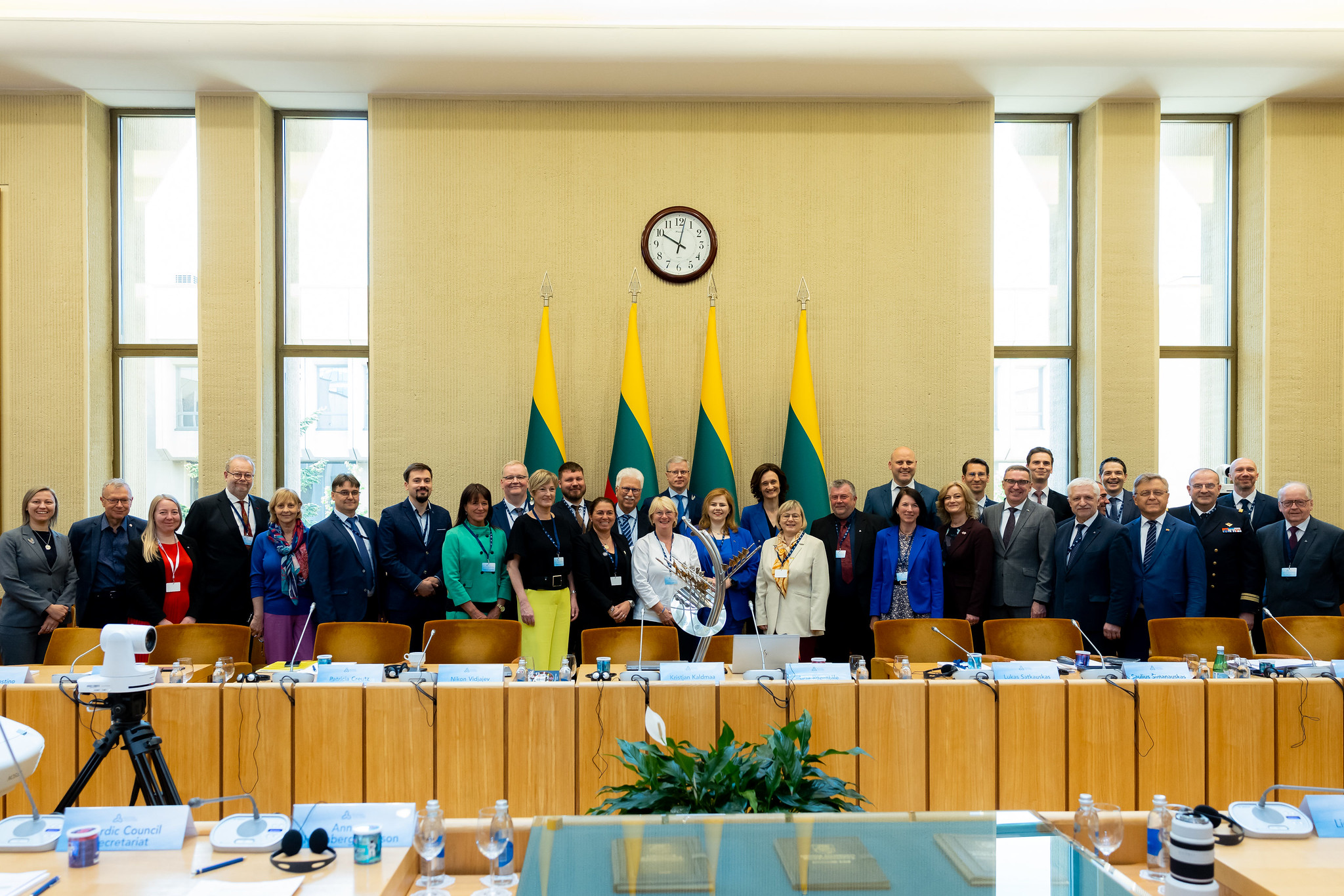
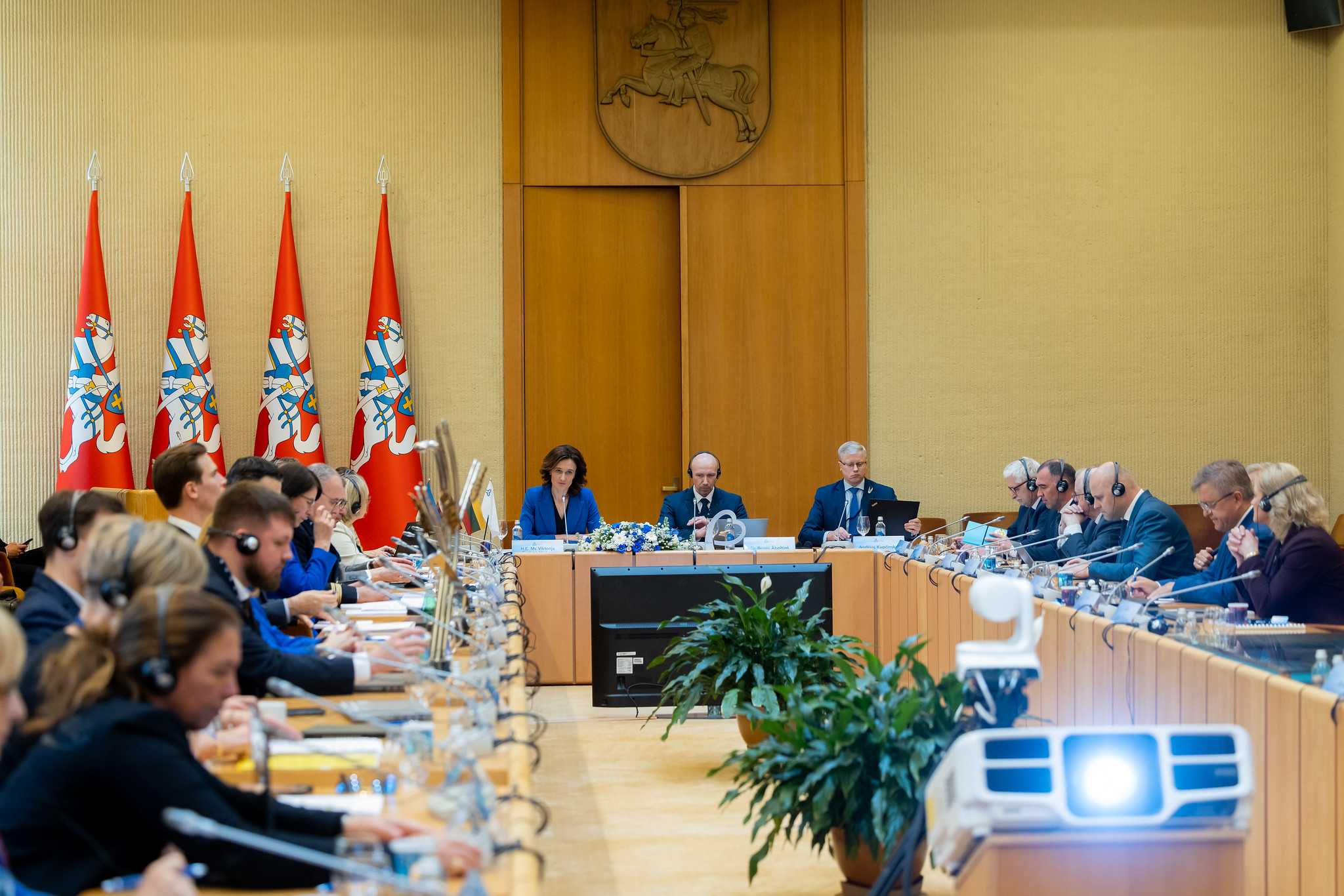
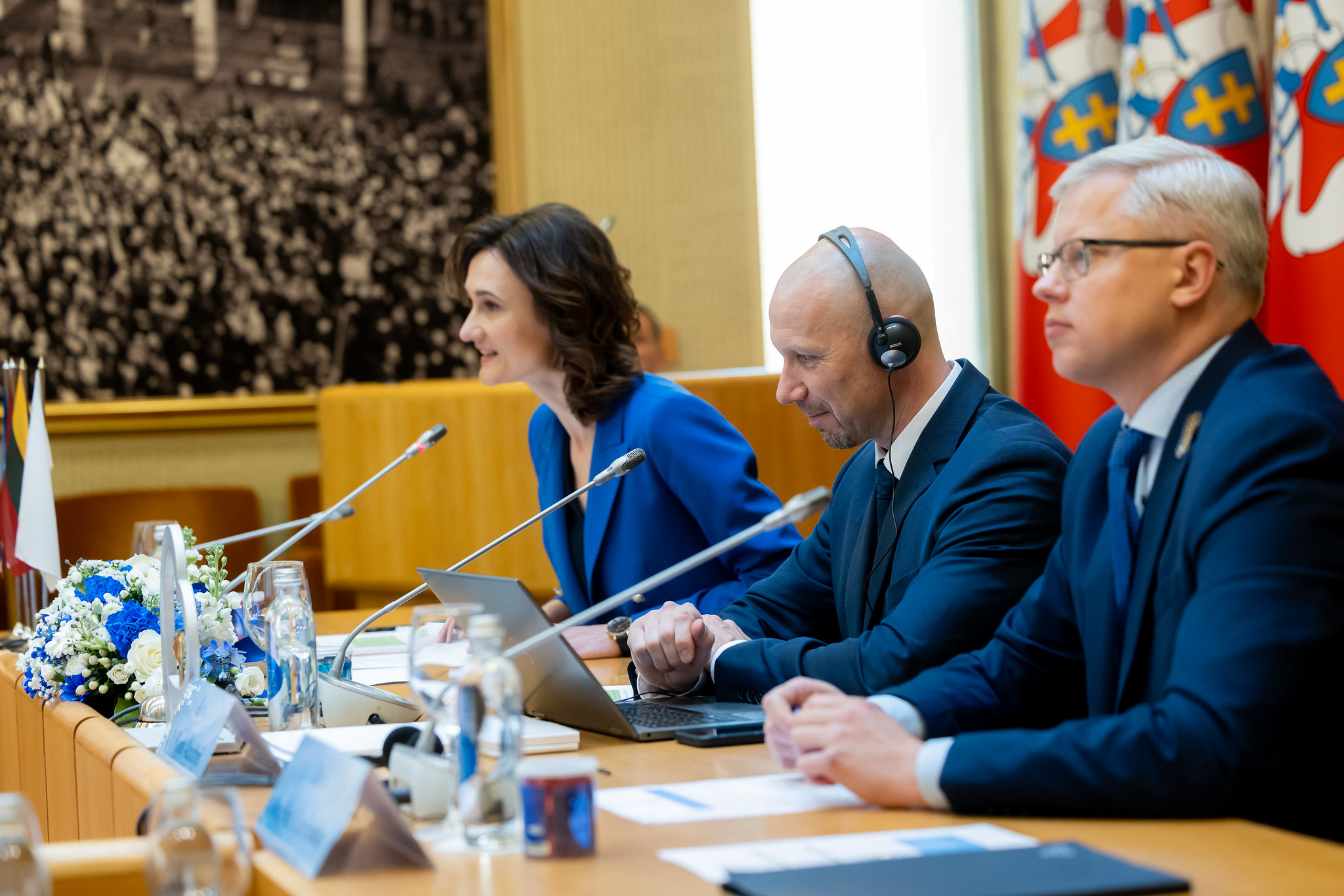
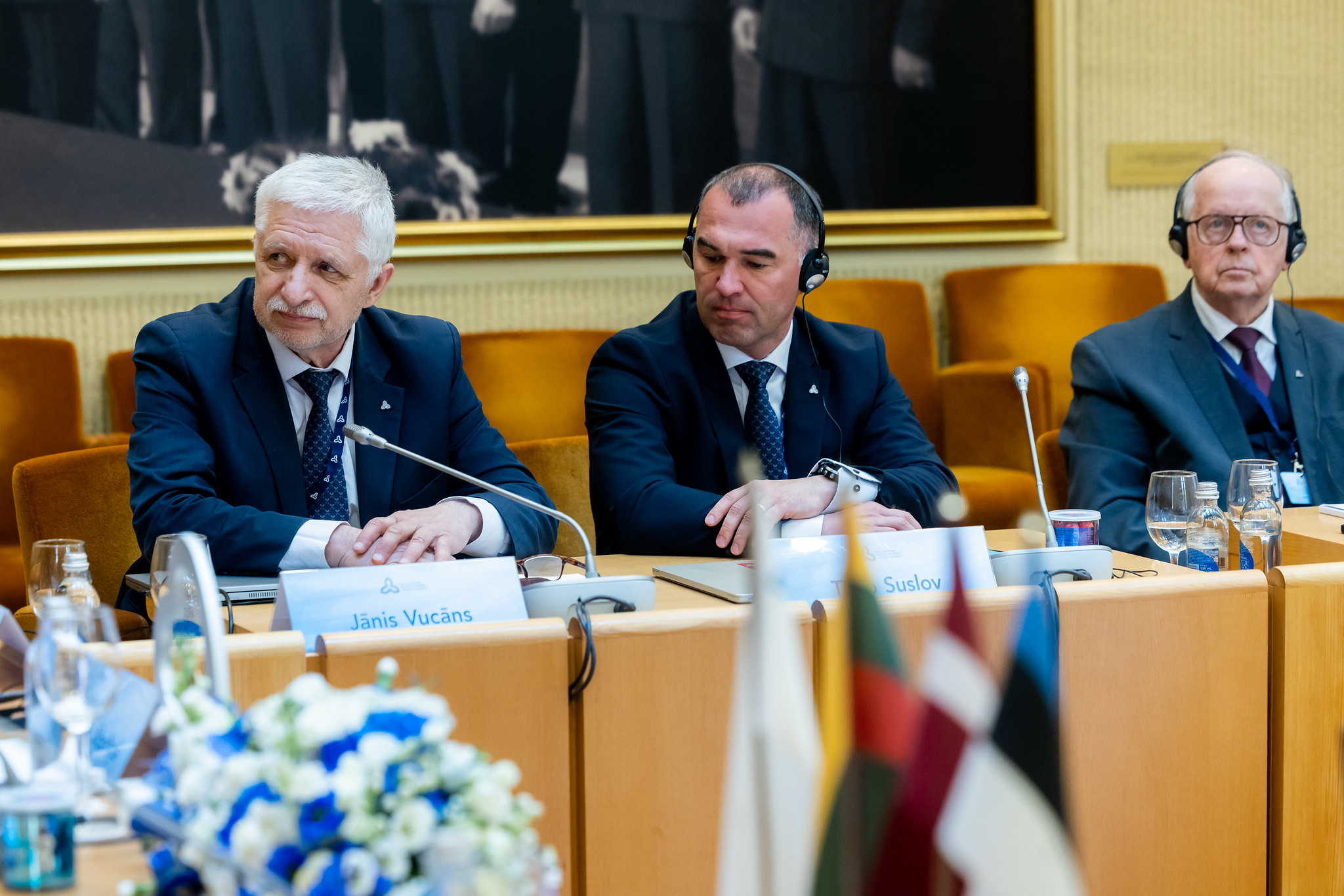
 Print
Print 

